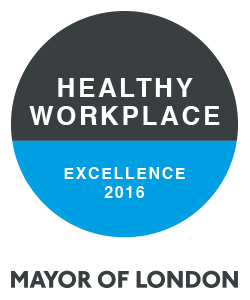Job summary
- Main area
- Medical Physics Computing
- Grade
- NHS AfC: Band 8a
- Contract
- Permanent
- Hours
- Full time - 37.5 hours per week
- Job ref
- 309-UCLH-6370
- Employer
- University College London Hospitals NHS Foundation Trust
- Employer type
- NHS
- Site
- University College London Hospital
- Town
- London
- Salary
- £61,927 - £68,676 Per Annum Inclusive of HCAS
- Salary period
- Yearly
- Closing
- 22/06/2025 23:59
Employer heading

Senior Computer Scientist - Systems and Infrastructure
NHS AfC: Band 8a
The use of AI is monitored and if applicants have used it, then they are required to declare this in their supporting statement.
Job overview
UCLH is a leading healthcare provider committed to delivering world-class patient care, research, and education. We are seeking a skilled, experienced, organised and motivated computer scientist with excellent communication skills and a commitment to solution-focussed collaboration, to manage projects within the Systems and Infrastructure Programme of Work in the Clinical Scientific Computing Team within the Department of Medical Physics and Biomedical Engineering at UCLH.
As a Senior Computer Scientist within the Systems and Infrastructure Team, you will be responsible for efficiently and effectively managing projects across a range of clinical specialities, and for ensuring the delivery of high-quality, secure, and compliant computing solutions. You will bring energy and passion as you provide solution-focussed, operational leadership to project teams and as you collaborate with key clinical, scientific and technical stakeholders. You will oversee the delivery of essential support to assigned clinical systems and infrastructure in BAU, working closely with the IT Analyst Team Lead.
You will have developed leadership skills, have a solid understanding of healthcare IT systems and infrastructure and established experience in clinical scientific computing project management and service delivery. You will be able to demonstrate how your excellent communication and interpersonal skills and your ability to collaborate with diverse stakeholders delivers effective outcomes.
Main duties of the job
You will work closely with the Systems & Infrastructure Lead for Clinical Scientific Computing as well as with clinical scientists and analysts within Clinical Scientific Computing and other members of staff within Medical Physics. You will develop strong and productive working relationships with clinicians, scientists and clinical managers and also with staff in UCLH Digital Healthcare Technology and their commercial partners.
We have significant commitments to support clinical services in Radiotherapy, Proton Beam Therapy, Nuclear Medicine, Sterile Services, Neurophysiology and Women’s Health but have a key role in implementing and managing systems that cover many other clinical areas. You will be part of a specialist team providing some on-call support and extended hours support to Radiotherapy and Proton Beam Therapy.
You will use your organisational skills to manage projects involving multiple clinical, commercial and technical stakeholders, whilst also bringing your technical and scientific skills and your understanding of the regulatory requirements, risk and quality management to evaluate, specify, implement and manage clinical systems.
Working for our organisation
University College London Hospitals NHS Foundation Trust (UCLH) is one of the most complex
NHS trusts in the UK, serving a large and diverse population. We provide academically led acute
and specialist services, to people from the local area, from throughout the United Kingdom and
overseas. Our vision is to deliver top-quality patient care, excellent education, and world-class
research.
We provide first-class acute and specialist services across eight sites:
·University College Hospital (incorporating the Elizabeth Garrett Anderson Wing)
·National Hospital for Neurology and Neurosurgery
·Royal National ENT and Eastman Dental Hospitals
·University College Hospital Grafton Way Building
·Royal London Hospital for Integrated Medicine
·University College Hospital Macmillan Cancer Centre
·The Hospital for Tropical Diseases
·University College Hospital at Westmoreland Street
We are dedicated to the diagnosis and treatment of many complex illnesses. UCLH specialises in
women’s health and the treatment of cancer, infection, neurological, gastrointestinal and oral
disease. It has world class support services including critical care, imaging, nuclear medicine and
pathology.
We are committed to sustainability and have pledged to become a carbon net zero health
service, embedding sustainable practice throughout UCLH. We have set an ambitious target of
net zero for our direct emissions by 2031 and indirect emissions by 2040.
Detailed job description and main responsibilities
For the full Person Specification and more information regarding the main responsibilities of this role, please refer to the attached Job Description.
Come and be a part of the best NHS trust in England to work for, according to our staff*
* UCLH top trust to work at in England - In the most recent NHS staff survey UCLH had the highest percentage of staff who said they would recommend us as a place to work, out of all general acute or acute/community NHS trusts in England – for the third year in a row.
UCLH recognises the benefits of flexible working for staff – To find out more, visit: Flexible working.
To discover more about what makes UCLH a great place to work, visit: Why Choose UCLH?
Person specification
Knowledge and Qualifications
Essential criteria
- 1st or 2nd class honours degree in computer science, a physical science, engineering, or equivalent
- Relevant PhD or equivalent (MSc / MEng with additional specialist training or research experience)
- State Registration as a Clinical Scientist / able to register within 3 years of appointment. Or Member of the RCT (Register of Clinical Technologists)
- Corporate Membership of relevant professional institutes (eg IPEM, IET)
- Advanced knowledge of architecture, configuration, security and performance management of networks using TCP/IP protocols
- Advanced knowledge of security issues associated with computer systems within the Trust, NHS and health sector, and the measures required to address these.
- Advanced knowledge of data management, including storage, archive, backup and data publication technologies
- Broad knowledge of medical devices and of other areas of medical physics and clinical engineering practice and procedure.
Desirable criteria
- Chartered Engineer or Chartered Scientist
- Evidence of training and development in Leadership & Management
Scientific & Technical
Essential criteria
- Broad knowledge across the full range of working procedures and practices in clinical scientific computing including relevant legislation, national and international standards, NHS policy, and professional and other guidelines.
- Broad knowledge of software engineering best practices (including issue tracking, testing, documentation, version control and continuous integration) that enable the delivery of reliable, sustainable and trustworthy outputs
- Advanced knowledge of computer hardware and software at both operating system and application level and also of medical device IT systems.
Clinical
Essential criteria
- Knowledge of clinical practice and the implications for clinical scientific computing.
- Basic knowledge of relevant anatomy, physiology and pathology.
- Advanced understanding of the potential risks to patients, staff and organisations arising from system failure, human error and clinical scientific computing practice
- Advanced knowledge and understanding of quality and risk management as they apply to clinical scientific computing.
Management & Leadership
Essential criteria
- Knowledge of how to offer effective supervision
- Understanding of quality and performance management and their application to a clinical scientific computing service.
- Significant experience of providing services in a scientific healthcare environment.
- Experience of supervising staff and trainees.
- Experience of participating in, leading discussions and taking minutes at committees / project groups involving scientific and technical information.
- Ability to supervise staff and trainees effectively and sympathetically.
- Able to encourage colleagues and contribute positively to the team.
- Able to manage change and introduce new technologies and working practices.
- Able to implement policies and procedures in own work.
- Able to assess impact of policy / procedure changes on safety and service provision.
- Ability to articulate and report the status of assigned projects and systems.
Desirable criteria
- Knowledge of appropriate standards and systems of financial accountability in a public sector organisation
- Experience of managing resources and project budgets.
- Experience of identifying service development opportunities and progressing business plans.
Experience
Essential criteria
- Significant experience of a scientific healthcare environment
- Significant experience of managing computer operating systems especially Unix and Windows
- Significant experience of a wide variety of computing systems and application packages
- Significant experience of managing IT systems in a clinical environment
- Experience of managing IT projects
Desirable criteria
- Experience of software development and testing
- Experience of programming both applications and systems
- Experience in the supervision of research and development work.
- Experience of holding grants and supervising research workers.
Skills & Abilities
Essential criteria
- Ability to apply knowledge and experience in making judgements regarding the safe and optimal configuration and use of medical IT systems, involving objective assessment of benefits and risks associated with the available options.
- Ability to perform options appraisals in complex situations based on complex information and judgements.
- Ability to provide specialised advice on the use of medical IT systems for patient diagnosis, management and treatment, for routine care and when planning and implementing a research programme.
- Ability to manage networks of Unix and Windows server and client computer systems
- Ability to manage and support complex database applications using SQL server
Desirable criteria
- Ability to write complex programs in a variety of high level languages such as C++ and VB
Communication
Essential criteria
- Able to produce clear and unambiguous written reports, guidance, policies, procedures and business cases which can be understood by staff and stakeholders from a variety of professions.
- Able to communicate risk associated with cyber security and data management in a clear manner to persons with no specialist knowledge, including clinicians, managers and external stakeholders.
- Able to communicate complex information at postgraduate level to other professional groups
- Able to present scientific papers at national meetings and conferences.
- Able to train groups of other professional staff.
- Able to deliver teaching and training on complex subjects.
- Ability to present information effectively for senior clinicians and Trust managers.
- Ability to chair meetings effectively.
- Ability to negotiate solutions to problems where conflicting views exist.
- Able to deal with complex and unpredictable situations.
Specific Personal Qualities
Essential criteria
- Able to exercise initiative to solve complex problems independently and with confidence when dealing with issues within own specialist area of competence.
- Able to prioritise and manage own time and workload under pressure.
- Great attention to detail.
- Commitment to develop and communicate the contribution of clinical scientific computing to healthcare and a vision of how to further realise benefits in this field.
- Ability to use computer software at an advanced level to gather, organise and process information.
- Record of presenting work at scientific meetings.
Desirable criteria
- Research / Development Track Record.
Applicant requirements
You must have appropriate UK professional registration.
Documents to download
Further details / informal visits contact
- Name
- Khalil Itani
- Job title
- Lead for Clinical Scientific Computing
- Email address
- [email protected]
List jobs with University College London Hospitals NHS Foundation Trust in Health Science Services or all sectors



